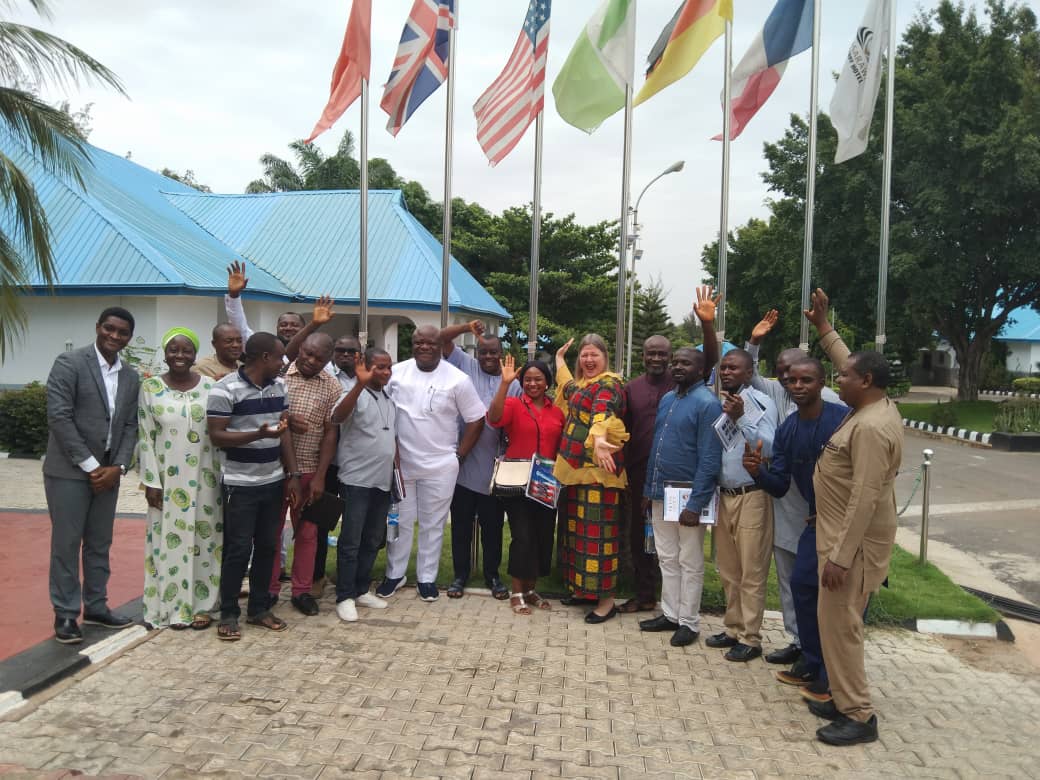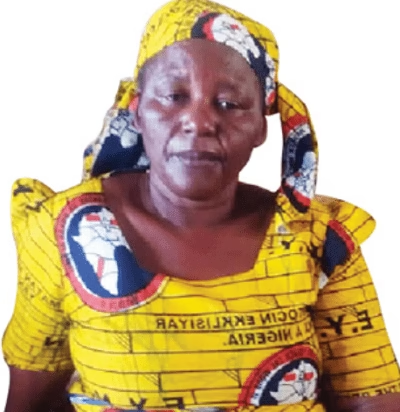World Press Freedom Day: Press has a crucial role to play in 2023 elections – US Embassy Spokesperson

The spokesperson of the United States Embassy in Abuja, Jeanne Clark, has emphasized the fact that the press has a very important role to play in the country’s democracy, as Nigeria marches toward the 2023 general elections.
Clark made the remarks to commemorate the May 3World Press Freedom Day in Lafia, Nasarawa State, where the embassy organized a workshop for journalists on Digital Security in the light of digital threats to journalists all over the world.
Speaking on the challenges facing the media in Nigeria, the embassy’s spokesperson said, “We know sustainability is a key issue here in Nigeria, particularly for journalists who work tirelessly day in and day out without regular remuneration. Ambassador Leonard raised this vital issue at the Democracy Town Hall we co-hosted with the Nigerian Guild of Editors in Abuja. As we look forward to the 2023 elections, we must recognize the essential role of the media in Nigeria today. We’ve underscored this reality in five of the six regions of the country over the past five months, and combined these discussions with editorial workshops.”

World Press Freedom Day: United States Embassy spokesperson Jeane Clark with journalists in Lafia, Nasarawa State, to mark the World Press Freedom Day 2022 at a workshop on “Journalism Under Digital Siege.” The speakers at the event were Professor Abiodun Adeniyi of Baze University, Abuja, Dr Theophilus Abbah of Daily Trust Foundation, Susan Dauda, and Joseph Adah, both of the US Embassy in Abuja.
She stated further that “This year’s theme “Journalism under digital siege” is borne out of concern for how technology is now being used to track and spy on journalists and the negative impact this would have for the safety of journalists and protection of their sources. According to UNESCO “growing sophistication and undetectability of mal- and spyware and their increasing use against journalists and human rights defenders by state and non-state actors, endanger free and independent journalism.” Although the use of technology has greatly aided the work of the journalist it is now associated with increased risk for surveillance and harassment.”
Twenty-six journalists attended the workshop in Lafia, where Professor Abiodun Adeniyi, Head of Department of Mass Communication at Baze University, Abuja, spoke on the topic: “Threats that Silence: the Poverty Threat.” The lecturer told journalists that, apart from digital threats, poverty has become a major threat to the practice of journalism in Nigeria, and encouraged journalists to rise above pecuniary interests in the practice of the profession.
At the event that held at Nasarawa Luxury Hotel in Lafia, Mr. Joseph Adah, a New Media Specialist at the US Embassy in Abuja, trained journalists on digital security, taking them through the importance of digital literacy, how to encrypt important messages on e-mail; how to protect their mobile phones from hackers, how to detect it if they are being trolled, and what to do if their websites or social media handles were hacked.
Below is the full text of Jeane Clark’s speech:
“It is a pleasure to be here this morning to welcome you to the 2022 commemoration of the World Press Freedom Day in Lafia, Nasarawa state, and we appreciate the opportunity to partner with the Daily Trust Foundation. It’s an honor to be here today to respect the vital role you, the journalists play in maintaining Nigeria’s democracy, and I appreciate the time you’ve afforded us to gather to openly and honestly examine the state of media freedom here today.
Every year the U.S. Embassy organizes activities to commemorate the internationally recognized World Press Freedom Day – in May. The United States attaches great value to the freedom of the press as an integral part of democratic governance. From our founding fathers recognizing and creating the fundamental right to freedom of expression over 200 years ago to President Biden hosting the Summit for Democracy this past December, noting, “Democracy — government of the people, by the people, for the people — can at times be fragile, but it also is inherently resilient. It’s capable of self-correction and it’s capable of self-improvement. . . . Democracies are not all the same. We don’t agree on everything but the declared choices of democratic nations will define of our shared future for generations to come. – I note this was before anyone ever imagined we would bear witness to the unprovoked attack on Ukraine.
The alarms are real. As Secretary of State Anthony Blinken shared with the Media Freedom Coalition, “From 2016 – 2021 approximately 85% of the global population saw press freedom decline in their country.” Forums like these are important to share real-life examples about the realities of journalism. Just this year, In the United States we had a former vice presidential candidate sued the NY Times for defamation. And just this week, a Seattle Times editor called for the adoption of tax credits to save newsroom jobs in the next Congressional budget reconciliation package claiming the Local Journalism Sustainability Act currently has bi-partisan support. The Poynter Institute in supporting this legislation highlight that it’s a bridge for newspapers that would otherwise close. They report that more than 2,000 newspapers have closed across the U.S. in the past two decades, and more than 100 have closed since the beginning of the pandemic. These are prime examples of how we can learn from each other with the thoughtful examination.
We know sustainability is a key issue here in Nigeria, particularly for journalists who work tirelessly day in and day out without regular remuneration. Ambassador Leonard raised this vital issue at the Democracy Town Hall we co-hosted with the Nigerian Guild of Editors in Abuja. As we look forward to the 2023 elections, we must recognize the essential role of the media in Nigeria today. We’ve underscored this reality in five of the six regions of the country over the past five months, and combined these discussions with editorial workshops.
This year’s theme “Journalism under digital siege” is borne out of concern for how technology is now being used to track and spy on journalists and the negative impact this would have on the safety of journalists and the protection of their sources. According to UNESCO “growing sophistication and undetectability of mal- and spyware and their increasing use against journalists and human rights defenders by state and non-state actors, endanger free and independent journalism.” Although the use of technology has greatly aided the work of the journalist it is now associated with increased risk for surveillance and harassment.
We are pleased to have with us Professor Abiodun Adeniyi of the Baze University Abuja who is an experienced journalist and journalism teacher to speak about silent threats, including poverty today. I’m sure he has thoughts about how it should no longer be a “silent” topic. In addition, my colleague at the Embassy and New Media Specialist Joseph Adah will share with you best practices and resources to enable you to best protect your work product on-line, to keep your sources safe, and to keep safety and security on the top of your daily agenda.
I thank each of our presenters today and look forward to a robust and fruitful discussion. Thank you. “
Sign up for The Insight Newsletter
Get in-depth, research and data-based interpretative reports from around Nigeria.



